Indigenous voice and violence: double trouble for the PM
The ALP has failed the people of Alice Springs and the PM’s inadequate and deceptive presentation about the voice is only fuelling mounting concerns.
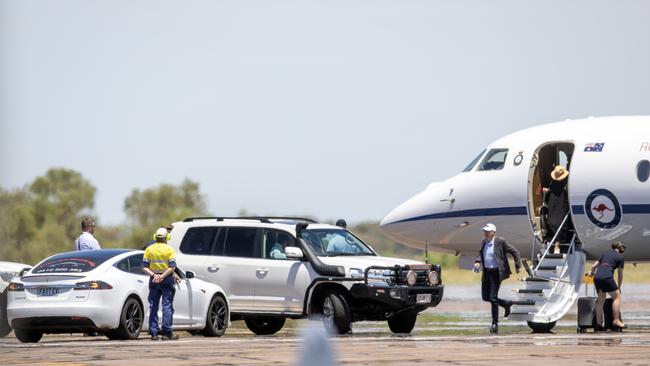
Albanese’s credibility as a Prime Minister able to address Indigenous issues is on the line. He has two related problems: the breakdown in Alice Springs, where Labor’s refusal to act earlier was an inexcusable failure, plus his manifestly inadequate and deceptive presentation about the voice, which is only fuelling mounting concerns.
After this week’s politically driven “fly in, fly out” dash to Alice Springs, Albanese has signalled a willingness and a mechanism to override NT Labor Chief Minister Natasha Fyles, and impose meaningful alcohol restrictions to stem the violence. His campaign for the voice will lack legitimacy unless he is resolute in prosecuting violence against women, sexual abuse of children, and the breakdown of law and order.
The scope of Albanese’s intervention is yet to be seen. But he has raised expectations by saying the resurrection of complete alcohol bans is an “option”, along with other steps to confront Indigenous disadvantage. Re-establishment of alcohol restrictions means Albanese is countermanding the NT government, yet bringing that government along with him.
This is federal intervention barely disguised, but not of the Howard 2007 model. It means Albanese is now the central player. He needs to be resolute.
Indigenous Labor MP for Lingiara Marion Scrymgour (whose seat is 40 per cent Indigenous) warns that if the NT government fails to implement this week’s modest initial steps on alcohol restrictions then the federal government will intervene, and that she intends to ensure the agreement is kept.
NT Country Liberal Senator Jacinta Nampijinpa Price, a fierce critic of the Territory failures, will move a private member’s bill to restore the alcohol ban that previously existed. Price accuses the Albanese government of misplaced priorities, saying that instead of “investing millions into a racially divisive referendum” it should be investing in drug and alcohol services and rehabilitation.
Claims by the Minister for Indigenous Australians, Linda Burney, that if the voice had been operating Alice Springs would not face its current crisis, are dubious in the extreme – coming from a Labor Party that failed to heed strong and persistent warnings from a range of Aboriginal organisations about the dire consequences of the change of policy on alcohol.
This is a failure of governance and politics, not advice.
The reality is harsh but unmistakeable. Albanese’s priority has been to wage a high-profile campaign for his voice proposal, while saying virtually nothing about the pleas of Aboriginal leaders, politicians and Indigenous organisations to halt the violence in Alice Springs, the bashing of women, free rein of grog, and the crisis of youth. This is why the Prime Minister needs to follow through now.
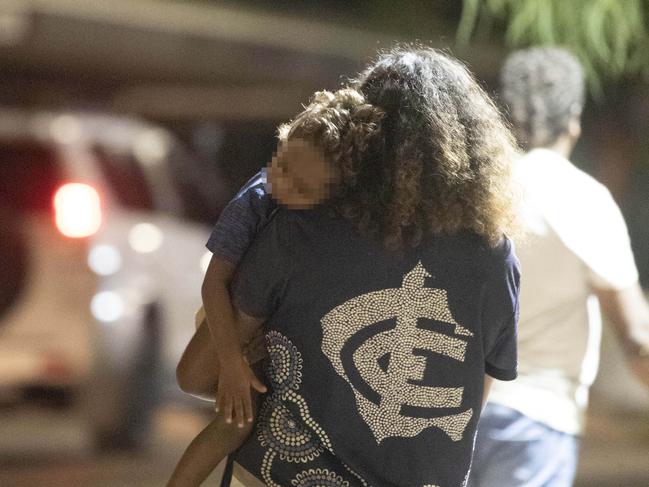
Speaking on the ABC, Burney tried to defend the government but did concede that people in Alice Springs might say action had taken too long. Capturing the rethink now under way, she said “being able to drink is not more important than being safe”. This statement of the obvious is critical, because it has not been the organising principle of the NT government.
Labor’s failure in Darwin and Canberra has been inexcusable. It reveals a strand of progressive racist obsession within the party running through remarks from senior Territory figures, with a stubborn Chief Minister Fyles earlier declaring she would not submit to any “race-based” intervention in Alice Springs. Both Scrymgour and Price have repudiated the use of race to justify NT government inaction and failures.
Albanese faces a leadership test on separate yet related fronts: the central Australian crisis, and the voice campaign that is losing momentum as prospects recede of meaningful bipartisanship. Opposition legal affairs spokesman Julian Leeser, an in-principle supporter of the voice, warns that unless the government provides more detail it risks losing Coalition supporters, and risks losing him. He said Labor was not listening to “the reasonable concerns of reasonable Australians”.
Denigrating people seeking more detail, even limited detail, is folly. But detail isn’t the main problem. The main problem is the detail we have – the wording of the constitutional amendment outlined by Albanese last year. This envisages a voice that advises both parliament and executive government on “matters” relating to Indigenous peoples. It is open-ended, unqualified and unlimited. This wording empowers the voice to offer opinions on most matters the parliament and government now consider (including, for instance, the date of Australia Day).
If the issue was just Indigenous recognition, the public would vote Yes above 90 per cent. But the issue is a far-reaching change via the Constitution to Australia’s model of parliamentary and executive government – and pretending this is just being courteous or it can be carried on the “vibe” is a deception.
When Albanese visited Alice Springs this week, one of the priority organisations he saw was the Central Australian Aboriginal Congress under chief executive Donna Ah Chee, who warned last May about the dire consequences of ending the alcohol bans and wrote to the new minister in June, along with several Indigenous organisations.
On May 2 last year, the congress said: “The sunset clause in s118 of the Australian government’s Stronger Futures in the Northern Territory Act 2012 will take effect on July 16, 2022. At a stroke, many Northern Territory communities, town camps and Community Living Areas will lose their legal protection from alcohol abuse. The “rivers of grog” will once again flow through our communities.
“The effects on the broader community through increased crime, antisocial behaviour and violence will be of great concern … Alcohol Protected Areas (APAs) have been a part of normal life for 15 years for many communities and have led to considerable health and social benefits. We cannot afford to turn the clock back now after so much progress. Unless the Northern Territory acts now, all the hard work and all the gains their reforms have made will be swept away.”
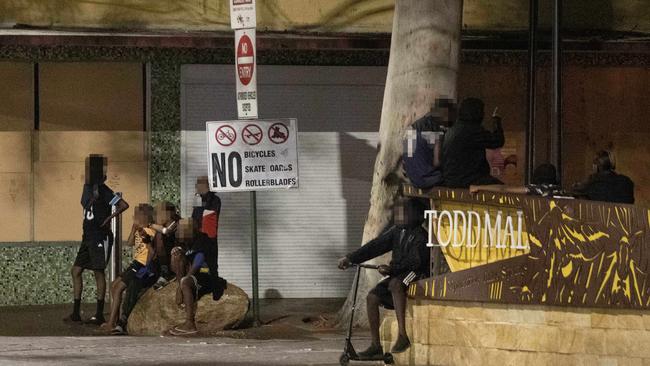
Ah Chee told the ABC that being “brutally honest”, both governments had taken “too long” to act. The response should have come “much earlier”. Her home had been broken into twice in four days. She previously warned: “There’s a tsunami ahead of us if we don’t get on top of this.”
Describing this week’s decisions as a “good start”, she dismissed critics of alcohol measures by saying “reducing supply actually works”.
A range of Aboriginal organisations had urged similar action. Taking one example, an Alice Springs community organisation called the People’s Alcohol Action Coalition told a parliamentary committee: “The Northern Territory government has failed its constituents and exposed thousands of its most vulnerable citizens to increased alcohol-related harm.
“The consequences of its lack of willingness or inability to assess the likely outcome of allowing the Stronger Futures alcohol provisions to lapse are becoming apparent.
“This was predicted by many, including Aboriginal health and community leaders who opposed the hasty and ill-advised legislative amendments to the NT Liquor Act and the Associations Act that were introduced in March and passed in May.
“The claims of former chief minister Michael Gunner, the current Chief Minister Natasha Fyles, and other NTG ministers, including the Attorney-General, Chansey Paech MLA, and the Minister for Aboriginal Affairs, Selena Uibo, the latter two both recently appointed to these portfolios, that the Stronger Futures alcohol provisions were racist and impinged on human rights do not stand up to scrutiny.”
The submission said the real racism lay in “suddenly exposing large numbers of Aboriginal women, children and other vulnerable people to alcohol” in “a nullification of the rights of those persons to live their lives free of violence and mayhem”.
The PAAC said the NT government had been “reckless” and made a “grave error in hastily devising and implementing the changes to the alcohol restrictions” that existed prior to July 2022.
At the least it should have either negotiated with the federal government or implemented its own two-year extension of the alcohol restrictions while having extensive consultations to sort a future position.
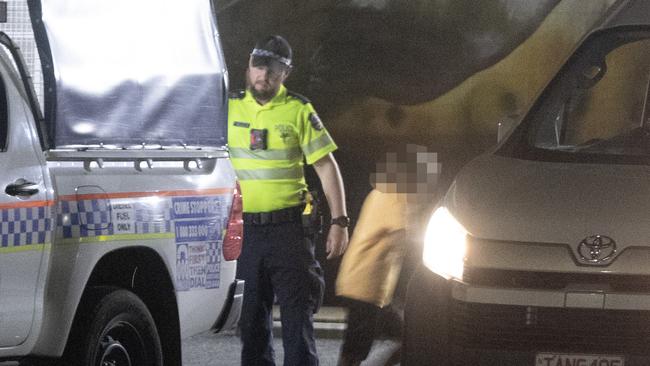
Cross-party federal territory politicians Scrymgour and Price issued warnings in the strongest possible terms in July last year, six months ago. Early last week, Scrymgour, a strong supporter of the referendum, drew the obvious link with the voice campaign, asking “How do we get Aboriginal people but also communities to have faith and to vote in this referendum if they don’t believe government is listening to them?” She called the violence at Alice Springs a “national disgrace”.
Scrymgour told Burney there were 16 beds in the ICU in hospital and 14 were occupied by Aboriginal women who had been beaten.
In her maiden speech on July 27, Scrymgour said the Darwin and Canberra governments must “work out a plan” to protect “innocent victims who are being swamped by waves of violence now that takeaway alcohol is getting back into our town camps”. Given the many years the protective regime had been in place, “you can’t just suddenly pull the pin on it without any protection, sanctuary or plan for the vulnerable women and children whom the original measure was supposed to protect”.
Scrymgour branded such action “more than negligent” – it was “tantamount to causing injury by omission”. She dismissed as “ludicrous” the argument that self-determination was a justification for inaction.
On the same day, Price, in a searing critique of the orthodoxy, said her goal “was to end the pointless virtue signalling and focus on the solutions that bring real change”. She said Indigenous victims were dying at the hands of Indigenous perpetrators. There should be outrage, a demand to end “violence and murder” and that victims “deserve to be acknowledged the same way that the women who protested to this very parliament deserved to be acknowledged”.
She said lives taken “in black-on-black violence, deserve better”.
But the mainstream media had “largely been silent” on such incidents. Meanwhile an “activist class” sought to “destroy” the bond of trust essential if Indigenous children felt confident enough to report abuse to police. Clearly, the role of the media in these failures deserves to be highlighted. After his meetings in Alice Springs, Albanese said “significant” decisions had been made. An office of Central Australian Regional Controller was being created, with Dorrelle Anderson appointed to the position with a brief to report back on February 1 about the implementation of future restrictions in Central Australia.
The immediate decision involves no takeaway alcohol on Monday and Tuesday, alcohol takeaway reduced hours from 3pm to 7pm on the remaining days, and a one transaction per person rule. Fyles pledged to these arrangements pending the review. Burney told the ABC’s Patricia Karvelas the NT government “admitted freely they got it wrong” but Fyles didn’t make that concession in her ABC interview.
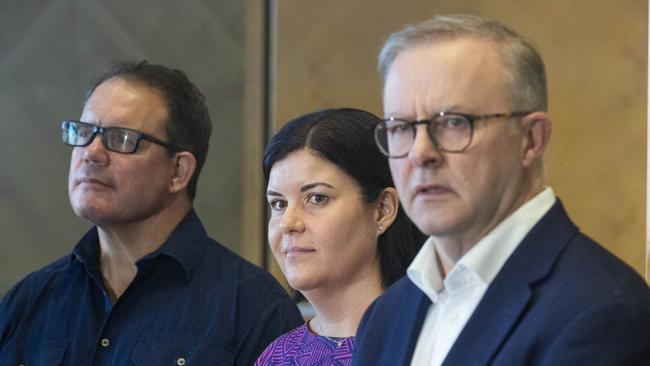
Albanese’s visit to Alice Springs followed demands from Peter Dutton that the federal government must act. In a range of interviews, the Opposition Leader said strong Indigenous voices coming from the NT wanted the Prime Minister “to lead, to act and to help them out”. He called for the federal police to be involved, saying “this issue was completely beyond the capacity and the resources” of the NT government.
Albanese rejects this view. He said there was no role for the AFP. But in his Sky News interview with Andrew Clennell, Albanese made clear he went to Alice Springs to ensure alcohol provisions were tightened and that he believed a response was essential.
The PM used his Australia Day remarks to continue his campaign for the voice. Polls show support is still a majority but is declining.
Warning signals from the opposition only grow stronger. Albanese shows no inclination to make any concession to the opposition. If that remains his position, it will only harden resistance within the Liberal Party and make bipartisanship a remote prospect.
Albanese’s tactics seem flawed but they surely reflect a core reality: Indigenous leaders won’t compromise in an effort to bring the Liberals on board.
The bigger problem, however, is the wording of the constitutional amendment outlined by Albanese in his Garma speech last year. He proposes that the voice “may make representations to parliament and the executive government on matters relating to Aboriginal and Torres Strait Islanders peoples”.
Albanese says this is a conservative idea. But that claim is misleading. This wording would empower the voice to offer advice across a wide ambit of government: on future bills and existing laws, and on virtually anything the executive government does – from cabinet decisions, to federal executive council decisions, to individual ministerial decisions.
Given that Indigenous people are spread across the entire country, this means the voice would be able to give advice on issues covering education, health, law and order, welfare, tax, economic policy, free speech, arts and culture, mining and energy, resources development, social justice and human rights, just to nominate some areas. It would obviously give advice on treaty and truth-telling.
We should remember the purpose of the voice is to influence parliament and government. This is a meaningful project. Pretending there is nothing to see here is disingenuous. You can imagine the media campaigns for recommendations made by the voice when those recommendations directly contest the parliament and the executive.
Now, if this sweeping ambit is not the government’s vision, then Albanese needs to tell us and change his constitutional amendment. Short of that, the Australian public is being asked to implement a radical change to the way our parliament and government function. This referendum is not just about Indigenous recognition – it comes with a far-reaching change to our governance.


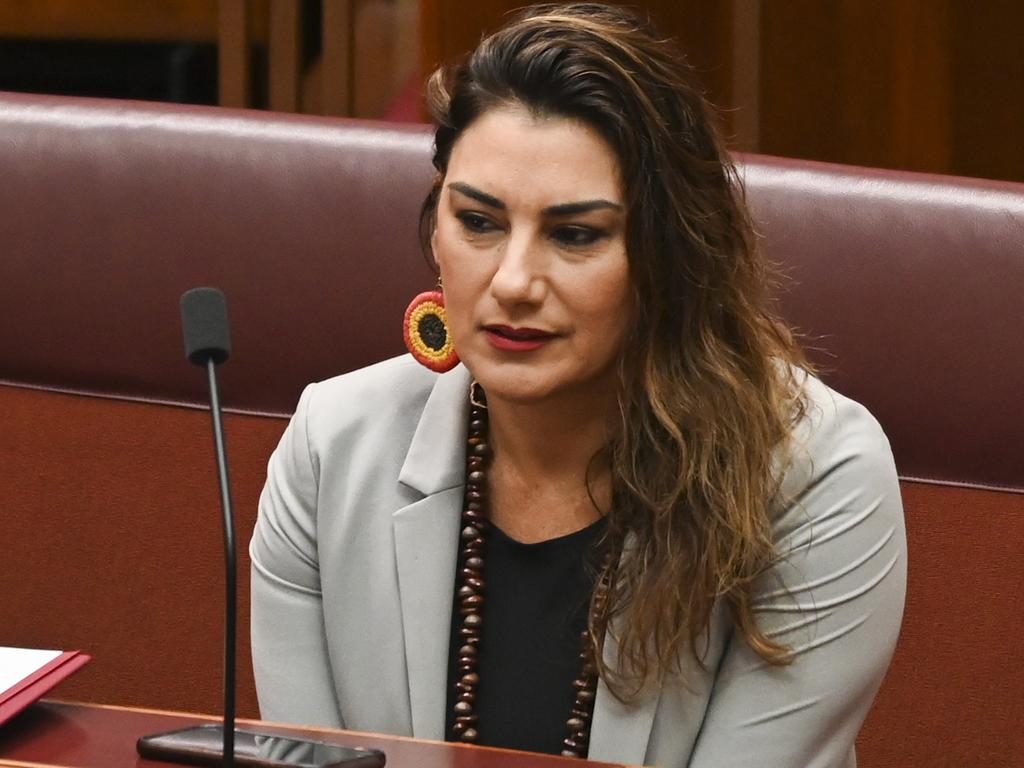
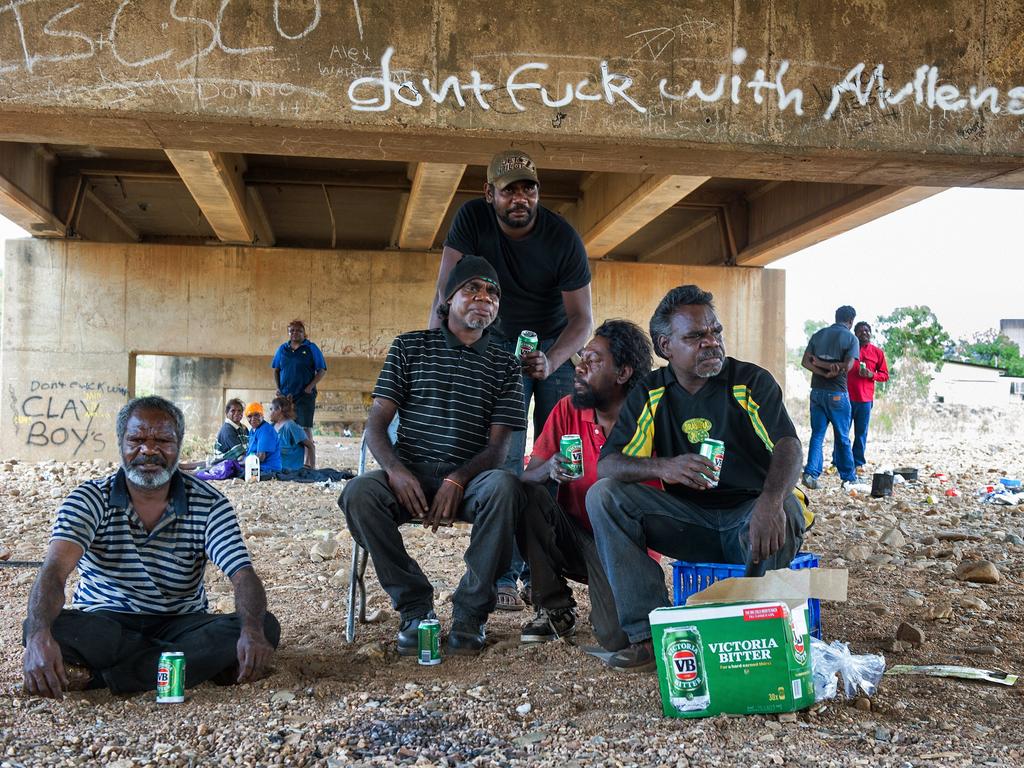
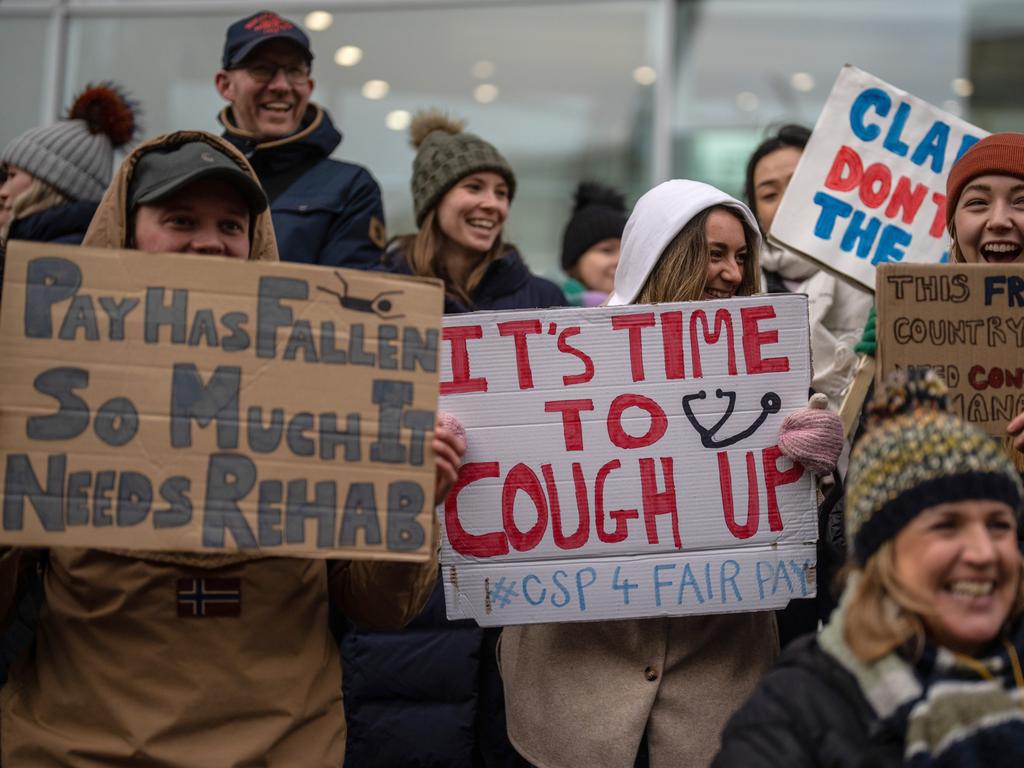
The Labor Party in Darwin and Canberra has failed the people of Alice Springs – Indigenous and non-Indigenous – with Prime Minister Anthony Albanese engaged in an urgent, belated effort to confront the crisis in the Northern Territory and, in the process, prevent further damage to his constitutional amendment for the voice.